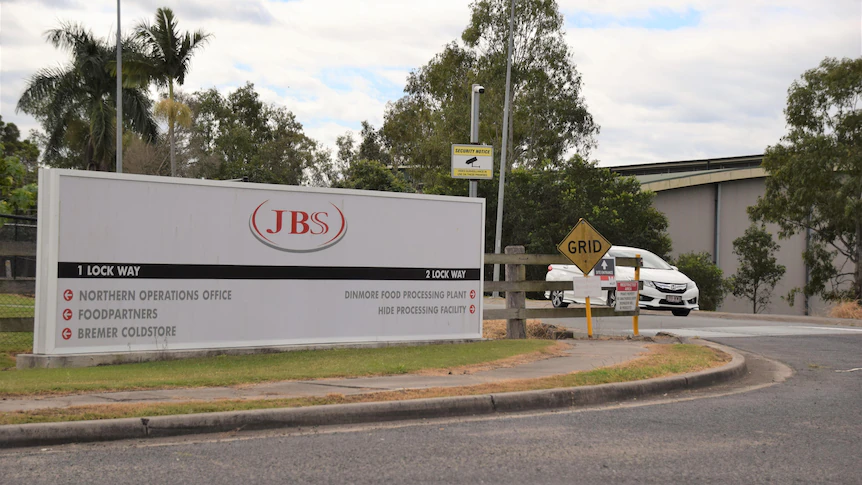Cyber attack shuts down global meat processing giant JBS
The world’s largest meat processing company, JBS Foods, has fallen victim to cyber attacks that have shut down production around the world, including in Australia.
Key points:
- The federal government confirms it is aware of the hack and is working to get JBS back online
- Industry experts say domestic market forces will adapt if JBS is offline long-term
- A union spokesperson says workers will be paid for the day with JBS restoring its payroll systems
The company’s information systems were targeted, chief executive Brent Eastwood confirmed to Beef Central on Monday.
JBS has 47 facilities across Australia and operates the largest network of production facilities and feedlots in the country.
The company also has meat processing facilities in North and South America, Brazil and Canada.
A spokesperson refused to comment on the cyber attacks.
Jon Condon is a publisher at Beef Central, a daily news and market intelligence service for the beef industry, and said the impact of the shutdown depended on how long the stoppage lasted.
“At this point nobody knows,” he told told ABC Radio Brisbane.
“It could be a day, it could be a week, it could be multiple weeks.
“The longer it goes, the worse the situation in terms of supply and disruption.
“There are a lot meat processors in Australia other than JBS, and if this issue was to extend beyond a short period of time, it would not be that difficult or unusual for processing to occur in other locations by other companies to keep the meat supply in order.
“If it’s only short term, a day’s processing loss isn’t going to make that much difference.”
He said, however, that JBS was the biggest company in the world for beef, chicken and pork, and the significance of the attack should not be underestimated.
Federal Agriculture Minister David Littleproud confirmed the government was aware of the hack and was working to get the company nationally back online.
“We’re obviously working with law enforcement here in Australia and we’re also working with our international partners,” Mr Littleproud said.
“It’s under investigation and it’s important that we respect that process.
“The technology that [JBS] use, the systems they use, go to the heart of the quality assurance of the beef that they process.
“So we need to make sure that we can get that up and going to give confidence, not just to consumers here in Australia, but also to our export markets.”
What does this mean for workers?
Quoting recent JBS data, Mr Condon said the company employed 6,687 beef and sheep processors around Australia.
It is these workers that the Australian Meat Industry Employees’ Union Queensland secretary Matt Journeaux was concerned about if the shutdown continued.
“The meat in the sandwich is that this is a concerted effort against Australian business and the workers will suffer as a result of that,” Mr Journeaux said.
“There’s six sites in Queensland that will be affected … and around the nation there would be significantly more.”
Late on Monday, Mr Journeaux said workers would be paid for the day, with JBS working to get its payroll system back online.
“I believe they will be paid because pay day is today,” he said.
What happens to cattle?
Mr Condon said if the stoppage lasted multiple days, cattle would likely be returned to paddocks, feedlots or agistment.
“This will create logistical problems right up and down the supply chain,” he said.
“It’s going to put enormous hardship on the JBS operations.”
Earlier this month, Argentina announced a snap 30-day ban on all beef exports with ramifications for the trade globally, including a possible shortage of lean beef.
According to Mr Journeaux, every step of processing was down.
“Cattle get entered into systems to be processed,” he said.
“When those cuts are in a box, computers print tickets with barcodes for those cuts, and I think all of those systems have been affected by this.”






